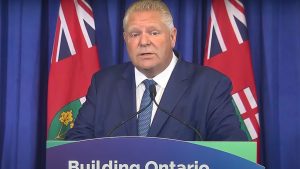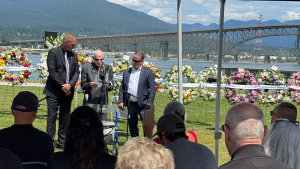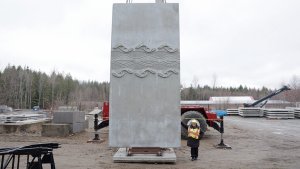The completion of construction deficiencies continues on the Seymour-Capilano filtration plant, as Metro Vancouver prepares the facility for operation.
Water treatment
The completion of construction deficiencies continues on the Seymour-Capilano filtration plant, as Metro Vancouver prepares the facility for operation.
“We are slowly introducing more and more water and testing the system,” said Glenn Bohn, communications specialist with Metro Vancouver.
“The commissioning of the Seymour-Capilano treatment plant is well underway. We began deliveries of filtered Seymour water from the plant in December. The commissioning is being ramped up in the coming weeks.”
The Seymour and Capilano watersheds supply up to 70 per cent of the Lower Mainland’s drinking water.
The Seymour-Capilano filtration plant, which is the largest facility of its kind in Canada, will filter up to 1.8 billion litres of water per day.
“Seymour source water is going through the Seymour-Capilano filtration plant and 65 per cent of the water from the Seymour River is being filtered through the plant,” said Bohn.
A quarterly report submitted to the Water Committee in November 2009, said NAC Constructors were busy completing construction deficiencies throughout the plant.
In September the plant was 97 per cent complete and Metro Vancouver was planning for transfer of site safety responsibilities from the prime contractor to Metro Vancouver.
“All of the major construction contracts are nearing completion, except for the twin tunnels,” said the reports author Mark Ferguson, water and waste water treatment division manager.
“As of the end of September 2009, twin tunnels completion is 55 per cent. The balance of the project is at 97 per cent overall completion. Filtration of Seymour and Capilano source waters is scheduled for late 2009 and mid-2013, respectively.”
In order to treat water from both sources at one plant, water has to be conveyed between Seymour and Capilano through underground twin tunnels.
Bilfinger-Berger Canada (BBC) Inc. was hired in 2004 by Metro Vancouver to construct the twin tunnels with a combined length of 14.2 km. Work on the project was suspended by BBC in January 2008 due to concerns about the safety of underground workers.
As a result of this action, Metro Vancouver terminated BBC’s right to perform further work on the project on May 26, 2008.
In April 2009, Metro Vancouver finalized negotiations and awarded a new contract for completion of the twin tunnels to the Seymour-Cap Partnership, which is made up of Frontier-Kemper, J.F.Shea and Aecon.
“Tunneling in the treated water tunnel (TWT) and raw water tunnel (RWT) resumed in mid July and late August, respectively,” said Ferguson. “To the end of September, the treated water and raw water tunnels were at 4.1 km and 4.2 km respectively (58 per cent of tunnels boring). This represents advances of 300m in the TWT and 65m in the RWT since the resumption of the work.”
Northwest Pipe in California is manufacturing welded steel liner pipe for the tunnels, including lining and coating work. This work is about 75 per cent complete.
Delivery of the liner pipe to Metro Vancouver’s temporary storage site adjacent to the Annacis Island Wastewater Treatment Plant continues with 61 per cent of pipe received.
Ferguson said overall completion of the tunnels was 55 per cent at the end of September. Projected substantial completion is spring 2013 with the tunnels in service by mid-2013.
Filtration improves drinking water quality by removing micro-organisms, organics, silts and clays caused by heavy rainfall, and reduces the amount of chlorine required to maintain water quality.
The water will also be treated to reduce corrosion in pipes and the staining of plumbing fixtures.










Recent Comments
comments for this post are closed